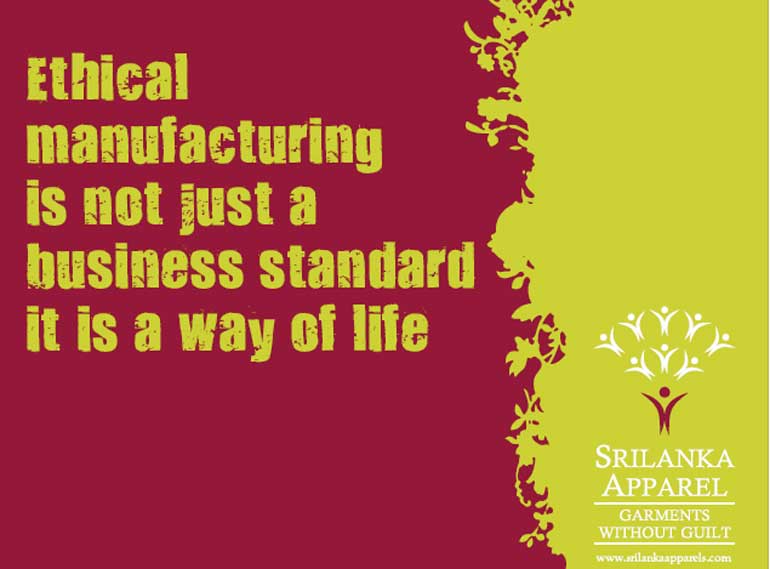Friday Feb 13, 2026
Friday Feb 13, 2026
Thursday, 18 January 2018 00:00 - - {{hitsCtrl.values.hits}}

The article ‘Local brands rising’, which was published last week in the Daily FT aroused considerable feedback and debate which is worth recounting as it broadens the context of this important discussion.
The article established that bargaining power has devolved to consumers from businesses with the changing media landscape and digital tools at their disposal. This is derived through a plethora of interactions happening in our daily lives which are influencing and driving collective perceptions amongst family, friends and communities. As a result, consumers are increasingly more favourably disposed to home grown brands with diminishing trust for large global multinationals. As long as local brands can meet the high standards and aspirations of customers through world class quality, whilst staying close to their roots, there is significant traction and market share potential to be gained.
Furthermore these local brands have greater flexibility to operate in their markets and to rapidly move and adapt to take emerging opportunities, whilst the multinationals are straitjacketed through their systems, processes and strategies which are often dictated through international offices.
Multinationals are adapting
However, the multinationals are not sitting still, they are changing and have identified their weaknesses and are deploying several initiatives to offset these. One, is to localise the brand as much as possible, which of course could be done through the brand positioning itself (how many ordinary consumers would know that Sunlight is a Unilever brand?) or introduce local variants such as Nestle’s Maggi Rasa Musu an all purposes seasoning with Sri Lankan herbs, or Signal Herbal which is following on the trend for natural toothpaste ingredients. Bolder initiatives are seen through acquisition strategies of local brands. The smart multinational companies now adopt a strategy of not integrating the acquisitions into their main company but instead adopting a partnership model providing them with the autonomy and the advantages of a small company to compete more effectively with local brands. The purchase of Innocent Drinks founded in 1998 and which makes smoothies and juices in the UK by The Coca-Cola Company is one such example.
Yet another strategy is to totally create new local brands as can be seen by Unilever India which launched Lever Ayushan ayurvedic brand to take share from the rapidly growing natural herbal personal care market. This seemed to be the only option they had to take on the rapidly rising local auyrvedic brands trend driven by Patanajali in India. The brand claims to have 5000 years of ayurvedic wisdom to solve modern lifestyle problems! Unilever’s Ayush may also be expected to be launched in Sri Lanka in the future.
These strategic options enable the multinationals to play the “local game” and compete effectively with home grown brands.
Operational model advantages
Beyond brand, there are other business considerations which should also be considered in the battle between local and multinationals. The sheer scale of the multinational business establishes stronger bargaining power when it comes to sourcing and pricing of raw materials. And many years of experience and tried and tested methodologies across continents also help strengthen their operational capabilities.
In some categories however, the rigid systems are a significant barrier which I have experienced firsthand, being an investor and Director of PickMe in its battle with Uber.
While Uber’s global business model has created value for consumers and has rapidly increased the growth of the company, its aggressive pricing doesn’t generate enough revenue to deliver attractive compensation to drivers and sizable profits to shareholders. Its global approach is to price its services around 30% below comparable taxi fares and then retaining 25% or more of gross bookings for itself. Uber has to reinvest most of its earnings back into the business by incentivising the driver to maintain its low prices which puts them into a downward spiral with little chance of turning profitable unless it switches its global model.
PickMe’s local strategy on the other hand is to peg its price to the general market whilst retaining only half the earnings that Uber keeps with the rest all going to the driver. This model has enabled it to move to profitability relatively quickly.
The business to business challenge
Whilst much of our analysis so far has focused on advantages that fast moving consumer good products have, a question was raised as to whether Sri Lankan companies involved in business to business marketing could also develop their own unique brand and business models to outsmart multinationals or operators in other countries, as they reach out to global markets.
The answer is certainly “yes”, since the brand is all pervading and goes across all businesses whether they are marketing to consumers or other businesses. There is no better example than the success of the Sri Lankan apparel industry through three world class companies: Brandix, MAS and Hidaramani to illustrate this.
These companies were built on the relatively disciplined business environment of the country, going back to the early 1980s. This long association in the sector has garnered them with considerable competence and expertise in this field. In addition, the stringent labour laws of the country and the higher operating costs that prevailed forced them not to play the low price volume game very early on.
At that time, Sri Lanka was in fact the only outsourced manufacturing country in Asia which had signed up to 27 of the International Labour Organization (ILO) Core Conventions covering areas such as prohibition of forced labour and prohibition of child labour. In addition, strong labour legislation demanded safe and healthy working conditions, governed hours of work, social and security fund contributions and environmental protection standards which were not in place in countries competing with Sri Lanka.
In the mid 2000’s STING Consultants devised a brand strategy for the industry around these core capabilities, which was a unique differentiating factor with global competitors and which was a relevant offering that buyers were searching for. This was the search to partner with ethical manufacturers. This insight is what led to the manifestation of the Garments without Guilt brand, which provided significant traction in terms of PR and global acceptance whilst providing an impetus for the industry to consolidate and make it their own. This can now be seen with the high manufacturing standards of the industry as they serve high end brands with more complex work at above average prices. Sri Lanka Apparel is now globally known for its ethical standards and manufacturing excellence.
In the IT and BPO industry currently worth $ 1 billion, where I have been recently involved with, as the local consultant on an ADB funded project, a brand strategy which identifies core competencies that are unique to Sri Lanka will soon be unveiled. There are some distinct differences in our IT industry which is unique to our country, and will be incorporated into the sector brand which will soon be taken to global markets through an industry wide marketing initiative.
The point being, that a brand can indeed be uniquely defined for businesses marketing to other businesses, thereby providing a competitive advantage. Since sector branding is a reality in Sri Lanka, business to business companies must give priority to developing their own brand, lest they will be left behind.
Unlocking value
Therefore, whether your company is a start up or a mature company in a well established industry, whether it be in the service or product sector, whether it is involved in marketing to consumers or other businesses, there is an inherent unique competence that local companies and brands can leverage in your global or local marketing initiatives.
The challenge is to find that key to unlock opportunities!
(The writer can be reached on [email protected] or [email protected]).